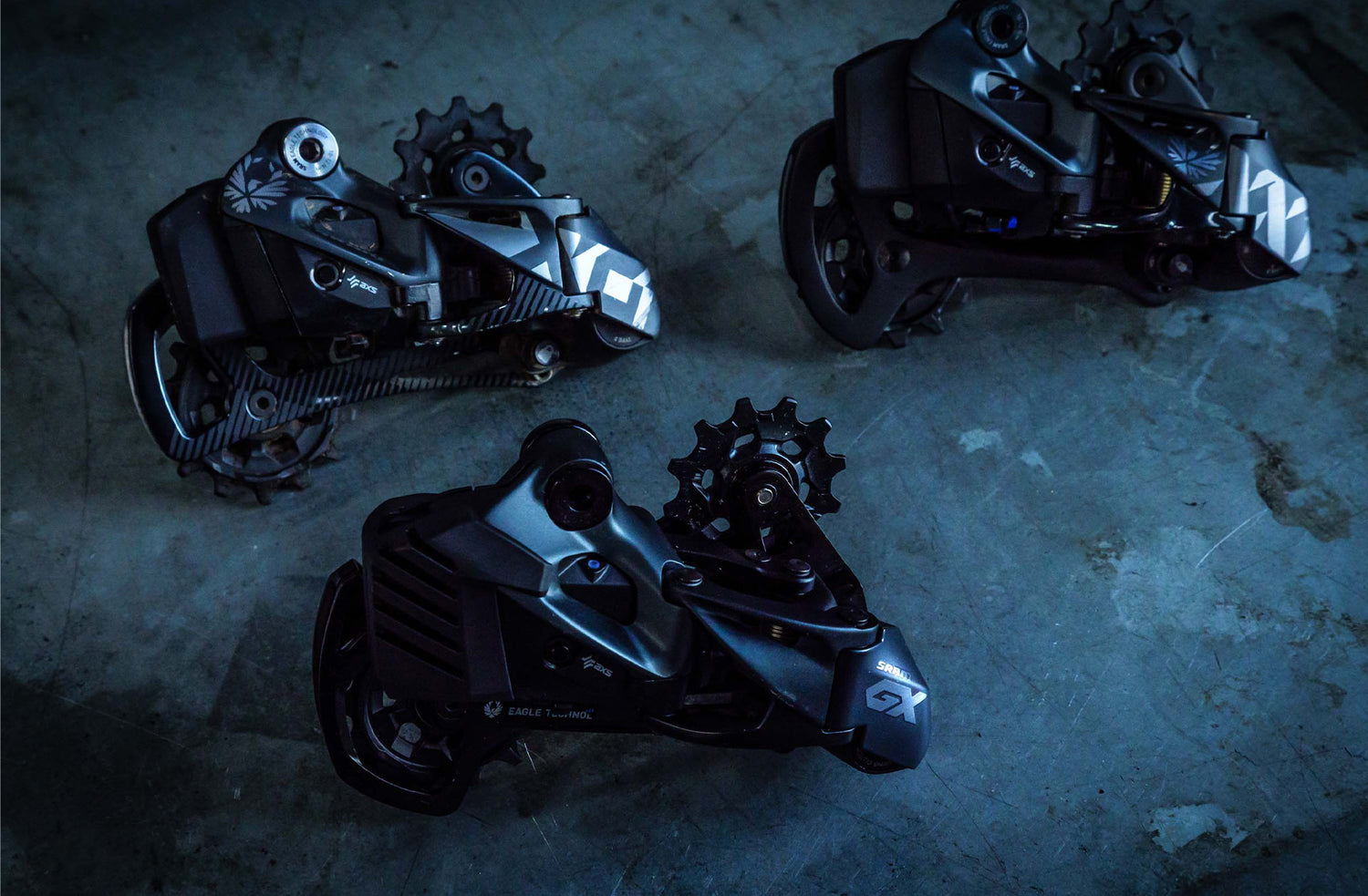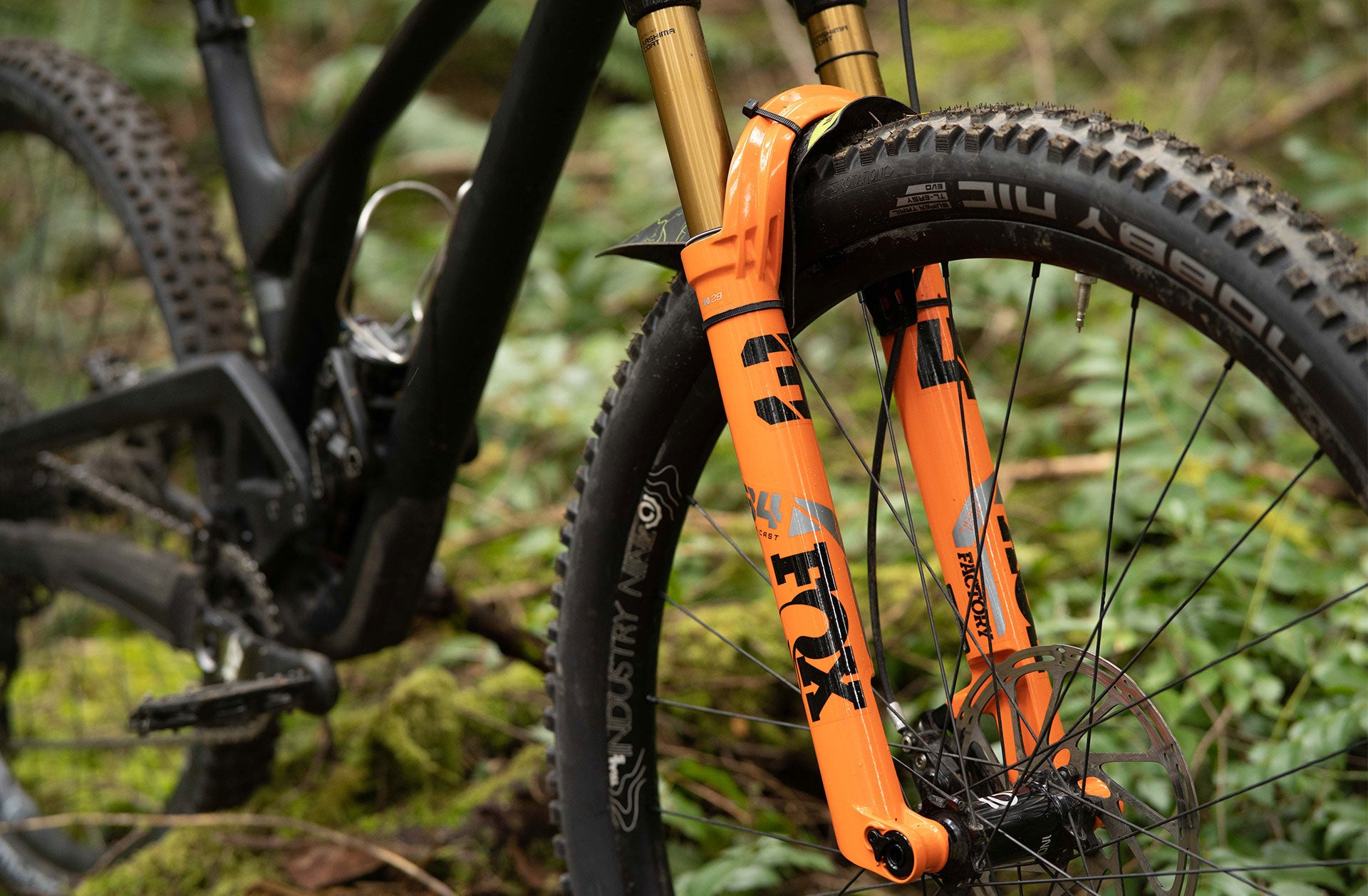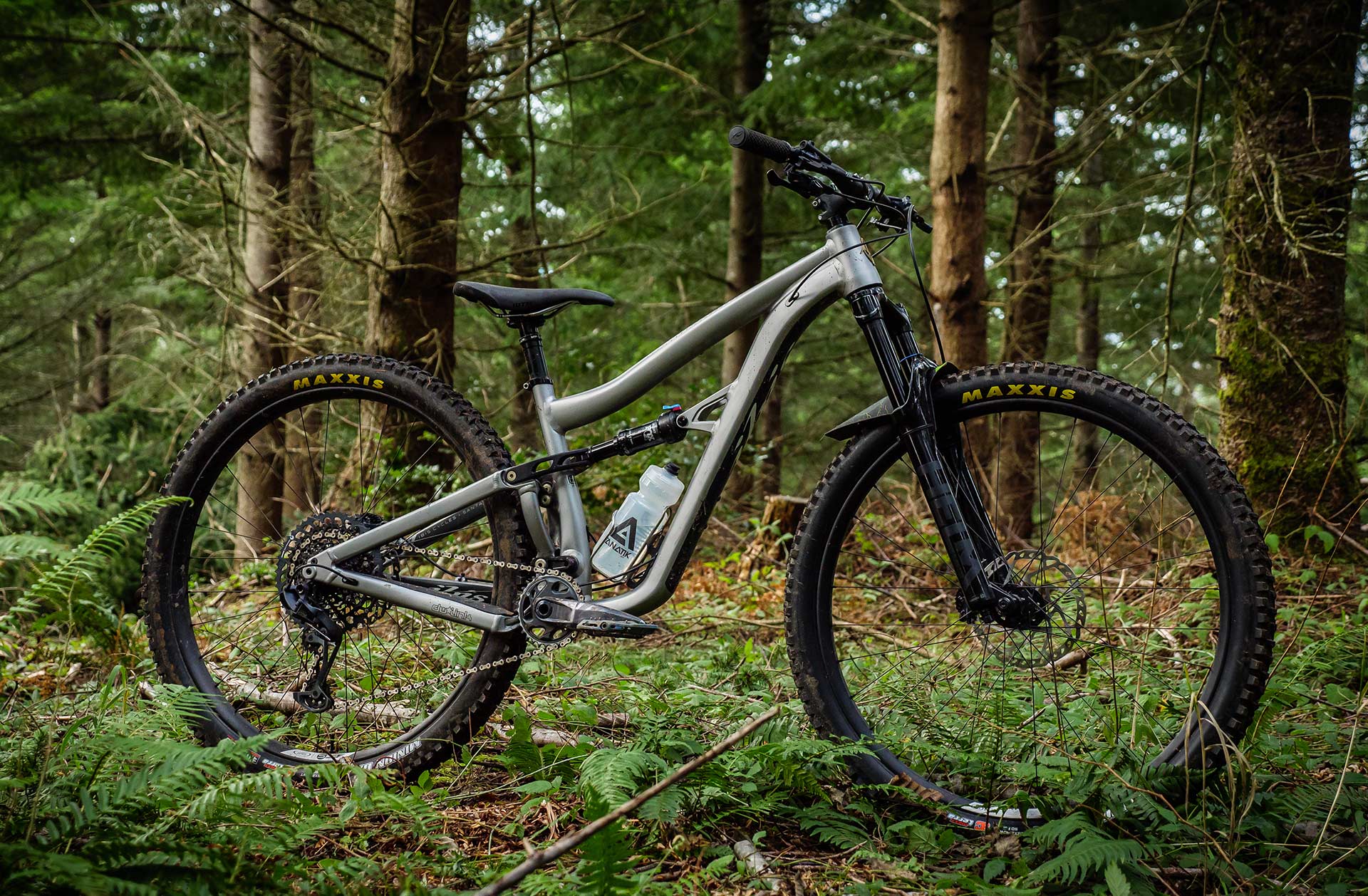If you’ve been anywhere on the mountain bike related internet in the past few week, you’ll be very aware (i.e. inundated with information) that SRAM has launched a GX version of their highly regarded Eagle AXS (pronounced “access”) wireless drivetrain. I’ve been running X01 AXS on my Evil Following for the last seven months, which has given me plenty of time to become accustomed to it, find its many strengths, and determine that it has very few weaknesses. Will the less expensive GX version live up to its predecessor’s reputation? Let’s find out.
My initial concerns with running a pricey, battery operated drivetrain were that I’d find myself on trail with a dead battery, or that I’d forget my battery at home. These have been proven unfounded. Between the extremely long charging intervals (20 hours, which for me is a month or more) and my strong desire to not forget the battery in the charger, I haven’t experienced that unpleasant scenario—and I don’t expect it to. When the battery is charging, I simply drape the charger over the bike. Easy peasy.
I’ve also found the entire X01 AXS groupo to be highly durable and resilient, so far having survived a very wet winter with very little cleaning, as well as a couple crashes that resulted in twisted handlebars and turned-around brake levers.

My X01 AXS derailleur after 7 month's use, cleaned up for photos.
I would have been disappointed had the groupo not survived that though, because until now the upgrade from a cable actuated Eagle drivetrain to AXS would have cost you at least $800. That gets you the X01 derailleur, the shifter, a battery, and a charger. It costs even more if you want the XX1 derailleur or need an entire groupset.

The $600 GX EAGLE AXS Upgrade Kit, in red, with the $1000 XX1 Kit behind it. Note the included multi-tool in the GX Kit.
The Eagle has Landed: GX AXS, a Wireless Drivetrain for Us All
For those of us who have been itching to clean up that cockpit and experience the crisp, smooth shifting that AXS provides, we now have an opportunity to do so at a more attainable price. SRAM’s AXS GX drops the price of the upgrade kit $200 from the $800 X01 upgrade kit, to a more palatable $600.
I haven’t had a chance to ride GX AXS yet, so let’s look at the fit and finish of the new groupo to see where that savings comes from and decide if the new kit is worth its weight.

All three of SRAM's AXS Eagle wireless derailleurs, in their full glory. Which one to pick?
AXS Compared: XX1 vs. X01 vs. GX
Battery and Charger
First, it’s worth noting that GX AXS comes with the same Mini-USB charger and the exact same battery as the pricier AXS options. These batteries are also used on SRAM’s wireless Reverb dropper, as well as their eTap components, so if you have any of those items in your quiver you can share your batteries across them all.
Shifter/Controller
Aside from a few cosmetic matters, the GX AXS shifter is identical to the AXS controller that is shared by the XX1 and X01 models. The GX model uses the darker Lunar Grey anodized coating that is analogous with the GX component line, visible on the matchmaker tab. Instead of an AXS logo, the GX logo makes an appearance. Aside from that, there are (believe it or not) no differences in the construction, housing, or electric internals.

The GX and X01/XX1 AXS controllers are identical other than their graphics, both weighing 68 grams with the stock paddle.
It comes stock with the same paddle as the XX1/X01 model; with ergonomics based on pressing an electric button instead of a mechanical lever, the feel and use differ significantly from what you’re used to. This new approach to shifting took me a little time to get used to, and if you’re unable to come to terms with it, SRAM has a $20 paddle that you can swap to which more closely mimics a mechanical shifter. So far, this has been my only gripe with the AXS line, and it’s a small one that is now easily remedied with the aftermarket paddle.

The fine details of the GX AXS controller, which is compatible with any SRAM AXS products.
Both the GX and XX1/X01 controllers are certified IP69K waterproof and dustproof, and I can attest to their ability to withstand nasty weather conditions. They are all-in-all a worry free component, with the easily sourced CR2032 lasting a supposed two years. At $150, $50 cheaper than the X01/XX1 model, the GX controller is pretty compelling.
GX Eagle Derailleur
Because the controllers are the same, this is what we’re really here for: a comparison of the GX AXS derailleur to the more expensive X01 and XX1 AXS derailleurs. Here’s a rundown of their cost:
- GX AXS Derailleur (part number RD-GX-1E-A1) MSRP: $370
- X01 AXS Derailleur (RD-X0-1E-A1) MSRP: $500
- XX1 AXS Derailleur (RD-XX-1E-A1) MSRP: $700

From left to right, the AXS derailleurs will cost you $700 (XX1), $500 (X01), and $370 (GX). The only differences lie in the materials used.
First, let’s talk about what’s the same (hint: all the important parts). Every model will accommodate a 10-50 or 10-52 tooth Eagle 12 speed cassette, or even the 11-50 NX Eagle cassette. They both feature the Overload Clutch, which disengages the motor’s gearbox to keep it from being damaged. It also allows the derailleur to move out of the way of any side-impacts, just as a mechanical derailleur would, to hopefully avoid any damage.
The electronic motor, gearbox, and computer in the GX AXS derailleur is the same as what is used in the higher priced models, which leaves material choices to account for the substantial price differences.

All the electronic components of the GX AXS derailleur, and even their housing, is identical to XX1 and X01 AXS.
The most noticeable of these differences is in the cage itself. The GX model uses a steel cage to hold its pulley wheels, which is where the additional weight over the X01 model comes from. The X01 AXS cage is made from aluminum alloy, while the outer cage of the XX1 derailleur is carbon fiber (it shares its inner cage with the X01 version).

The primary difference between the three AXS derailleurs is the cage material. From left to right: XX1 uses carbon and alloy, X01 uses alloy, and GX uses steel.
That is the ONLY difference between the GX and X01 models. The XX1 derailleur gets a few more fancy weight saving bits, like hollow titanium pulley wheel bolts and a titanium derailleur mounting bolt. I heard reported on one bike news outlet that the XX1 derailleur gets ceramic bearings in the pulley wheels, but that is not the case. It runs the same steel bearings as the GX and X01 models.
Conversely, you will see one difference on the GX derailleur that its more expensive siblings don’t get: a battery cover. This simple plastic piece might give you a little piece of mind that your battery won’t somehow fall off the derailleur. Can you get it for your current X01 or XX1 derailleur? Yes, it’s $20. Is it necessary? I think not. I’ve never knocked off my battery, and I’ve never heard of it happening to anyone else. It also adds 10 grams to the weight of the unit.

The GX AXS derailleur comes with a plastic cover, which you can purchase for your higher end models. It weighs 10 grams and has no functional purpose.
Final Verdict?
Given that I have yet to run the GX AXS wireless drivetrain, I can’t say without a doubt that it performs as well as my tried and true X01 shifter and derailleur. I will, be installing the GX kit pictured here on my Following to give it a full thrashing. Once I do, I’ll report back both here and on our YouTube channel.
With that said, given that there are more similarities than differences in these groupos, all indications are that performance will be identical between the three versions. If that’s true, why would you ever opt for the X01 or XX1 models? Weight. Let’s take a look:

Derailleur weight is the only functional difference in SRAM's AXS line. Clockwise from left, XX1 weighs 373 grams, X01 weighs 390 grams, and GX weighs 454 grams (battery cover not included).
Although the 81 gram weight difference between GX and XX1 is clearly not massive (that's less than a quarter of a pound), it is located on one of the most impactful places on your bike: the end of your rear swingarm. Why does this matter? Your swingarm is un-sprung weight, and changes in un-sprung weight make a noticeable difference in how your suspension performs. Think of it this way: imagine swinging a big, heavy hardwood door back and forth. It takes quite a bit more effort then opening and closing a light screen door, no? Same idea with your swingarm. If it can change direction more readily, than it can follow the contours of the ground better and keep that 2.5 DHR II where it helps you - on dirt.
Does this matter? Not really, and especially not if you're going to throw an Onyx hub and a Double Down Minion DHRII on your bike anyways. But if you've taken pains to minimize weight elsewhere, then yes, it should.
For the rest of us, certainly myself, GX AXS is probably the way to go. There's always somewhere you can spend that extra $200 you're saving, whether it's on better suspension, a nicer wheelset, or a trip to a new mountain biking locale.
Happy trails! - Dan at Fanatik




